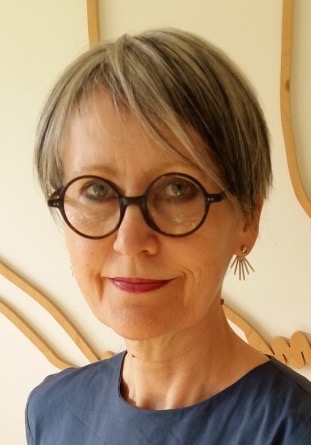What Moves You?
- Elise V Allan

- Jun 10, 2020
- 3 min read
first published June 2018

Have you ever felt that you have a choice between sliding into inertia as you operate on autopilot, or forcing yourself to do something you really don’t feel like doing? Mel Robbins, talking on TedxSF, compares our autopilot habits to hitting the inner snooze button; and suggests that the experience of finding the activation energy to change is as jarring as hitting an emergency brake. She speaks of forcing ourselves to move. But “another force motivates us, […]more primitive and more powerful than the urge to create: the force of entropy.”1 If entropy is a more powerful force than the urge to create, we are going to meet resistance. We are likely to hit the inner snooze button when we meet an impulse to do something new and life enhancing with, “Later. I’m just…” And as we are accustomed to operating on autopilot we don’t even notice that we are ‘snoozing’ our best opportunities for creative movement. But when we force ourselves into action, looking for improvements in our practice, whether it’s playing piano or life drawing, we can have a problem. Aldous Huxley wrote, “In all psychophysical skills we have this curious fact of the law of reversed effort: the harder we try, the worse we do the thing.”2 Coming to terms with this paradox is one of the most frustrating things about developing our creative practice. We know that those who have the opportunity to spend the maximum time practicing are more likely to succeed than those who don’t. Malcolm Gladwell wrote in Outliers about the unusually ‘talented’ having had the opportunity to practice for an optimal 10,000 hours prior to achieving something ground breaking. But we often find that the ideal of dedication gets distorted into beating ourselves up for never working hard enough, just as an ideal of life balance and sufficient rest can easily lapse into something closer to inertia and a sense of defeat. So how do we tip the balance of forces to favour creativity? Maybe we’re going to have to harness more energy. We can catch little pockets of energy. They’re the creative impulses that seem so small we easily miss them. Those of us who are engaged in creative practices will be very familiar with the impulses that appear when improvising musically, drawing, painting, writing, dancing; during those activities we actively respond to them. And I wonder how much we could learn to attune ourselves to looking out for them in other contexts. Mel Robbins suggests that we need to act on impulses for change within five seconds or they get lost. I don't know if this is true, but would it be worth improvising with this more often in our lives? We can acquire energy in an environment that generates it; a drawing class, a choir, a writers’ workshop. A group of warm, supportive, like-minded people can generate a lot more creative energy than one person alone.3 We can dig down to the source of our wanting to live more creatively, explore the layers of desire. “I should do it because it would be good for me,” doesn’t access any new energy. “I would feel so good about myself”, moves us a lot more. “It’s when I feel most alive” touches a source of longing that can really energise us, if we can bear it. (It touches an ache.) And there’s love. Digging down deep enough to find the care and kindness to want to give our best. Even when it's uncomfortable. It’s the most vulnerable place to go, but without a fight, and without judgement, it alters our relationship to inertia. It moves us. 4 1 Mihaly Csikszentmihaly One broad definition of entropy in the dictionary is “the degradation of the matter and energy in the universe to an ultimate state of inert uniformity” 2Aldous Huxley, The Divine Within 3A good business woman would also add Creativity Coaching groups to this list. If you’d like to join one of our groups, in Glasgow, or on Zoom, get in touch. www.elisevallan-creativitycoaching.co.uk/about-coaching 4 “People think I'm disciplined. It is not discipline. It is devotion. There is a great difference.” and “Some singers want the audience to love them. I love the audience.” Luciano Pavarotti *If you’re not sure whether one to one creativity coaching is right for you, but would like to find out, I offer a free 30 minutes trial session, in person, by Skype or Zoom. http://www.elisevallan-creativitycoaching.co.uk/contact Image by Elise V Allan, 'Touched', gouache, ink, pencil 2014




Comments